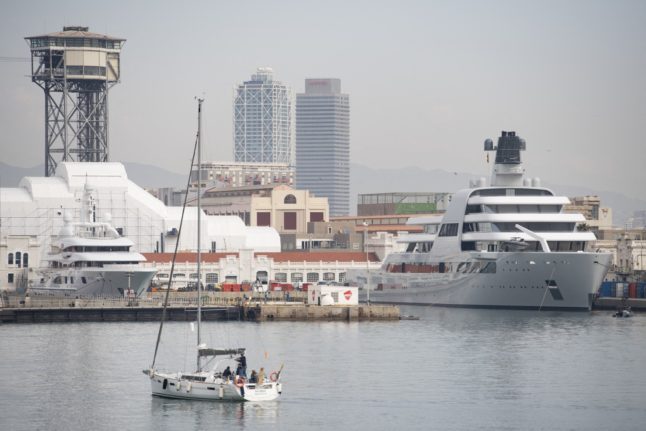Catalonia had considered importing fresh water by boat but David Mascort, the regional government’s environmental chief, told a news conference that a “floating desalination plant is a more economical and environmentally sustainable solution” that will provide greater “security of supply”.
“The amount of water we will obtain is much greater than that which we would obtain with boats, and it is also much cheaper.”
The plant, which could start operating as early as October, will produce around 14 cubic hectometres of fresh water per year, or about six percent of the water consumed in Barcelona and its metropolitan area, Mascort added.
Catalonia’s regional government in February declared a drought emergency for Barcelona, Spain’s second-largest city, and much of its surrounding region after over three years of below average rainfall had left water reservoirs depleted.
The measure led to tighter water use restrictions in the affected area, which is home to some six million people, especially for crop irrigation, livestock farming and industry.
The floating desalination plant is expected to be installed for a period of five years. The Catalan government hopes that desalination plants currently under construction on land will be completed by this point and can take over.
Concerned about dwindling fresh water reserves, the Catalan government for the first time this week raised the possibility of imposing consumption limits on tourism.
Despite spring rains, water reservoirs in Catalonia are at just 18 percent of their capacity, the lowest level in Spain.
READ ALSO: Drought-hit Catalonia to open hotel swimming pools to the general public



 Please whitelist us to continue reading.
Please whitelist us to continue reading.
Member comments